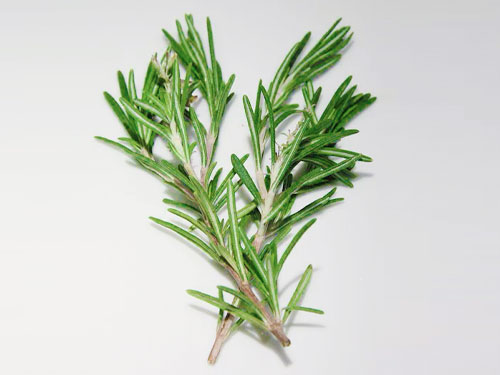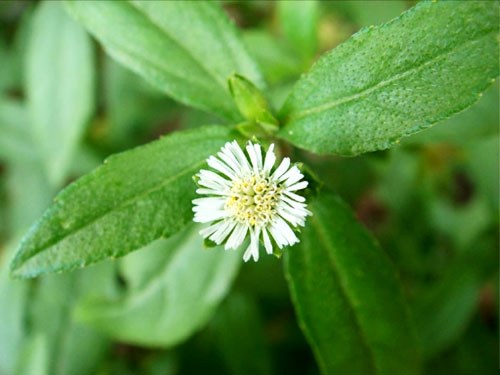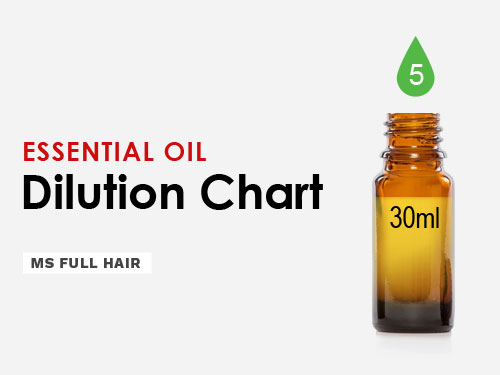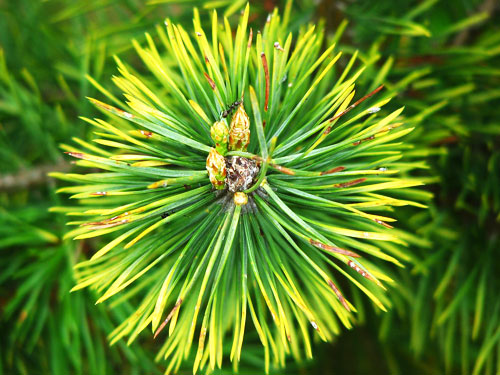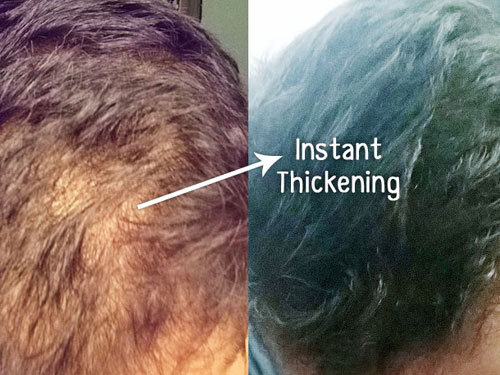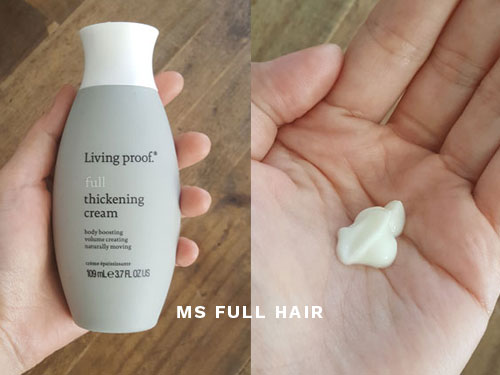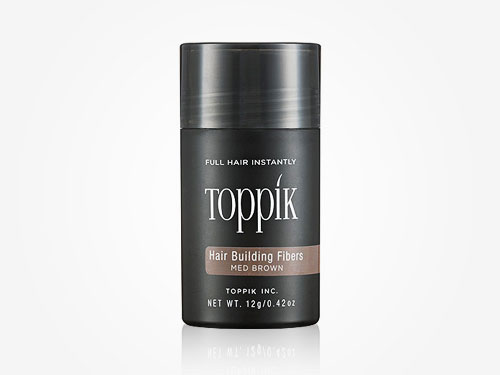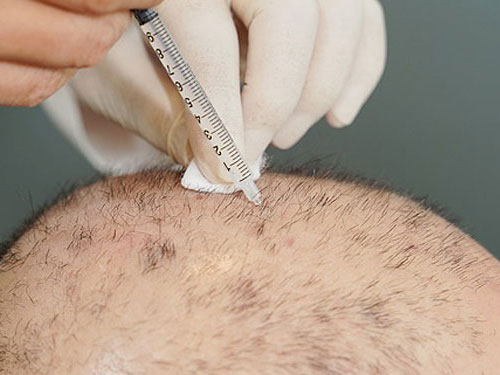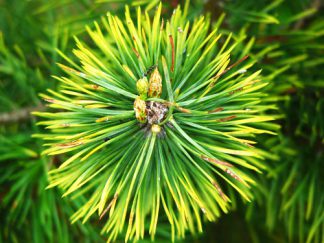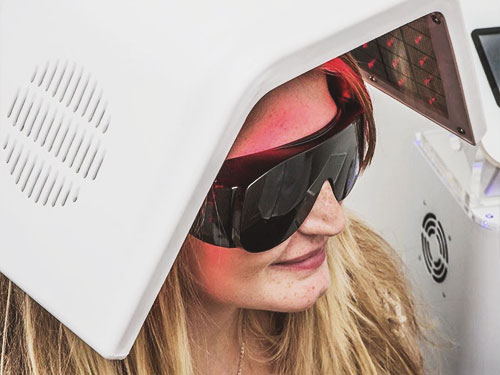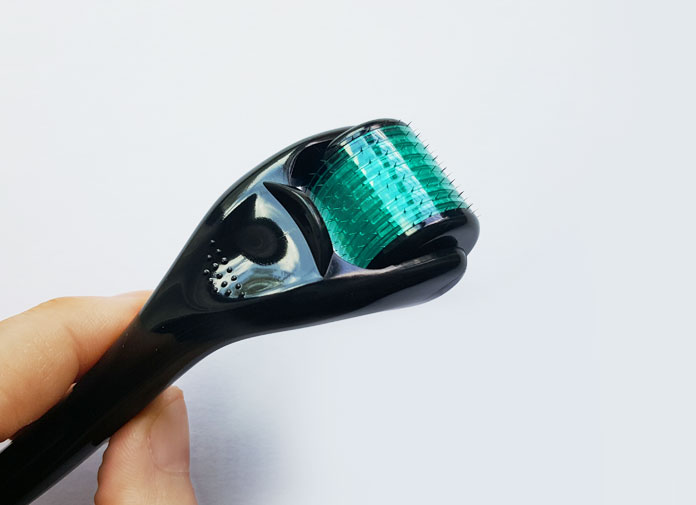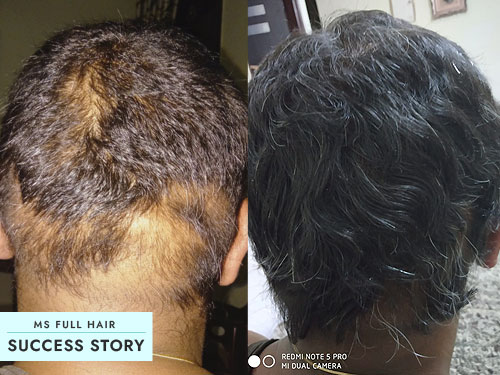Pharmacopuncture is a new form of therapy that combines the use of acupuncture needles and Chinese herb extracts. A 2019 study analyzed 92 pharmacopuncture cases soley used to treat people with alopecia and discovered top 3 extractions that are beneficial for hair regrowth.
Benefits
✓ Prevents hair loss
✓ Stimulates hair regrowth
Growth Recipe?
Yes (See Below)
Using acupuncture for hair loss – It’s a common traditional medicinal approach in Asia.
But in recent years, there’s a new form of acupuncture that goes beyond the use of needles.
In this article, I will share an interesting paper that talks about exactly this.
Instead of a long introduction, let’s jump right in.
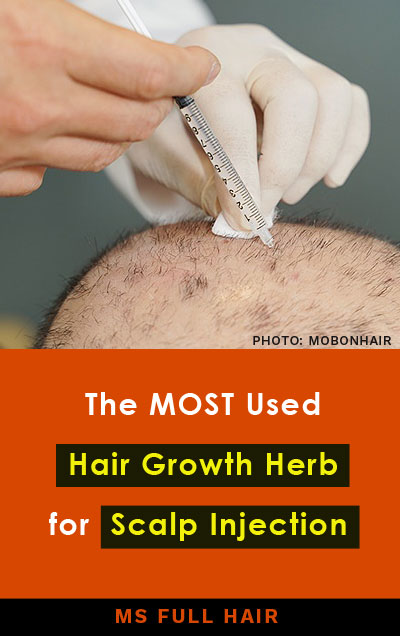
Pharmacopuncture? What is this?
Have you heard of something called pharmacopuncture?
It’s a new form of acupuncture therapy that combines Chinese herbal medicine and needles.
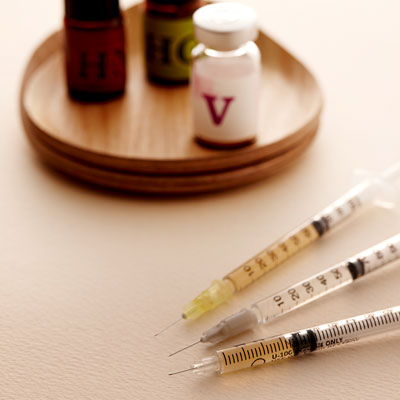
To put it simply, think of a PRP therapy for hair regrowth.
For PRP, a doctor draws your blood and process it and injects into the scalp.
For pharmacopuncture, instead of the processed blood (platelet-rich plasma), an acupuncturist mostly uses Chinese herbal extracts for the purpose of stimulating hair regrowth.
In fact, the use of pharmacopuncture is not exclusive to hair loss. It has been used for treating various symptoms including headaches, depression, eczema and fatigue, just to name a few.
So what herbs are used in pharmacopuncture for treating hair loss?
TOP 3 extractions used for hair regrowth in Pharmacopuncture
Korean researchers analyzed 369 cases in 23 studies from 1996 to 2019 (1).
All of the studies they analyzed were based on alopecia treatment cases using Korean medical practices (along the same lines as the Chinese traditional medical practices).
Out of 92 Pharmacopuncture cases, they found the top 3 extractions used for hair regrowth.
So what are the top 3 extractions?
#3: Hwangryunhaedoktang
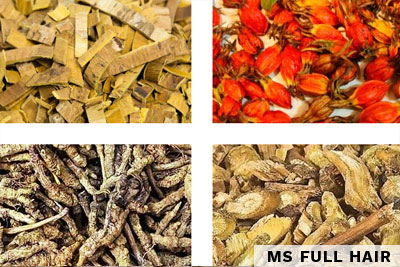
- Gardenia
- Chinese skullcap
- Goldthread
- Phellondendron bark (Amur cork-tree bark)
Many Korean medicine journals note that “fire” (referring to the elevated body heat) is the root of various illnesses including hair loss. These four Chinese herbs (Hwangryunhaedoktang) are formulated together to treat symptoms caused by body heat.
#2: Hominis placenta
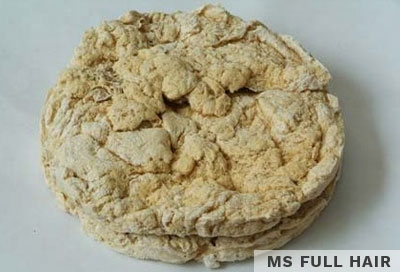
Hominis placenta is a medicinal material derived from human placenta (a temporary organ developing during pregnancy).
Interestingly, human placenta extract has been popularly used as a therapeutic compound in Asia, especially in China and Korea. Its main use is to restore something called “Qi” (or “Chi”).
Qi is believed to be vital energy circulated in the human body. Asian traditional medicine emphasizes that “Qi” is the most essential element for keeping every part of the body functioning properly.
When it comes to hair loss, a 2016 study (2) by Korean researchers notes that Hominis Placenta extract elongated the anagen (hair growth) phase when topically applied on mice. Particularly the level of FGF-7, the important protein for hair growth, increased.
In fact, the use of placenta extracts for hair loss is popular at a lot of Korean medical clinics.
#1: Safflower seed oil
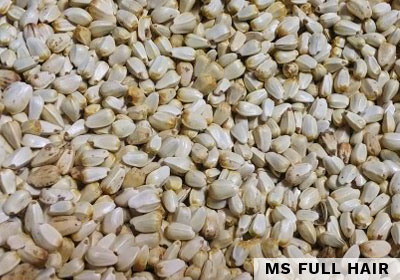
The top extract used in pharmacopuncture for hair regrowth was safflower seed oil.
Note that safflower seed oil is NOT same as the safflower oil.
So, what’s special about safflower seeds for hair loss, you may ask?
Safflower seeds and hair loss
According to the paper, the main benefit of safflower seeds is to help increase blood circulation and tonifying (nourishing) the blood.
While safflower seeds are commonly used in Asia for preventing osteoporosis and promoting vascular health, I wasn’t able to find any particular studies on safflower seeds for hair growth; however, here are number of ways safflower seed oil could help with hair loss based on my findings:
How safflower seeds may help with hair regrowth
Safflower seeds are rich in linoleic acid also known as omega 6 fatty acid.
Omega 6 is an essential fatty acid that needs to be included in the diet, since our body can’t produce it naturally.
It’s also a controversial acid with continuous debates on whether it has anti or pro-inflammatory effects for internal consumption. There are numerous studies on this with very different results.
One of the most recent studies from 2019 (3) also has an answer for this.
Researchers from the University of Eastern Finland concluded that “it all depends”. Their discovery points to a gene called FADS1, which humans carry a different variant of.
According to the researchers, linoleic acid can either increase or decrease inflammatory response depending on how an individual’s FADS1 gene is structured.
As far as the hair loss studies go, one research notes it was effectively used to reverse hair loss in a person who had both alopecia and scalp dermatitis. The participant was deficient in essential fatty acids with those symptoms. After the topical application of linoleic acid to the scalp for just 21 days, the researchers note that both symptoms were reversed.
Safflower seeds are ultra-antioxidant
According to a Japanese study (4,5), safflower seed extract contains a major antioxidant compound called serotonin hydroxycinnamic acid amides. When tested on humans in supplement form, the extract was able to inhibit oxidation of LDL and improve inflammatory response.
It may not be a surprise that there are a number of studies reporting how high LDL cholesterol levels can lead to androgenetic alopecia (AGA).
One study (6)even confirmed that the level LDL cholesterol was significantly elevated in the AGA group than in the control group.
Another 2018 study reports on its antioxidant effect for kidneys. When tested in mice with Cisplatin (chemo medication), safflower seed extract was able to significantly increase the antioxidant defense system and down-regulates the number of over-expressed proteins caused by the medication.
As the kidney plays a crucial role in regulating minerals in the blood and getting rid of wastes, it’s an important organ for your hair follicles, as it requires constant stream of healthy nutrients to grow.
Then can I just buy safflower seed oil and use it for stimulating hair growth?
Well, it’s not that simple.
Safflower seed oil you see over the counter is highly processed and used as a cooking oil
Safflower seeds used in pharmacopuncture use specialized extraction methods to separate active ingredients in many cases. These are only available at an acupuncturist’s office.
One way you can still use it for hair loss is to find a cold-pressed safflower seed oil and make your own hair growth mix.
Towards the end of the article, I will share a quick hair growth recipe using safflower seed oil.
Pharmacopuncture before and after pictures for hair loss
I checked numerous oriental medical clinic websites and I was able to find some photos here and there.
First, there are a couple important things to note here:
First, most oriental medical clinics use pharmacopuncture along with other oriental therapies including Chinese herbal supplements.
Next, while researchers from the above paper found those 3 extracts to be most used for treating alopecia, the clinics also use other herb extracts as well. Some of these include wild ginseng, goji berries, and Lingzhi mushroom.
Here are some before and after photos:
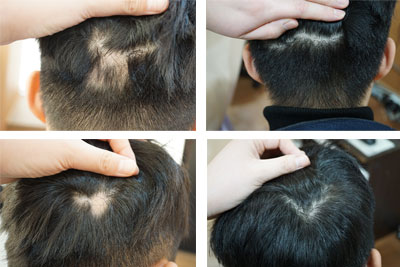
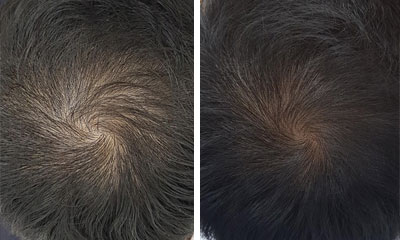
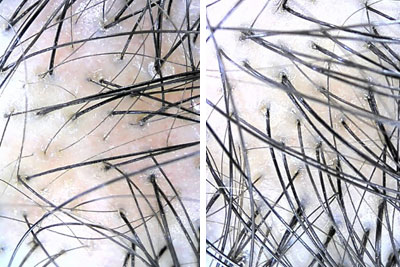
How much does pharmacopuncture cost?
It depends on the clinic, but generally ranges from $40 ~ $65 per session requiring a weekly visit.
This is a LOT cheaper than a PRP therapy for hair loss due to its comparably simpler procedure of preparing the stimulus agent (extract vs platelet)
Is pharmacopuncture safe for hair?
Based on my research, pharmacopuncture is likely to be safe for the use of stimulating hair growth.
Also note that while this is a popular alternative medicinal treatment in Asia, it’s not approved by the FDA.
Hair growth recipe using safflower seed oil
While you can’t just go buy the pharmacopuncture version of the safflower seed oil, what you can do is to alternate it with a cold-pressed safflower seed oil.
The main advantage of cold-pressed extraction method?
It doesn’t require heat to extract the oil. As it’s produced in low temperature, the oil retains more active compounds, compared to the typical oil extraction method that degrades its natural substances.
While this is not the same as the pharmacopuncture version, it still makes a great carrier oil for your own hair growth mix.
Also, by using a derma roller, you can enhance the stimulating effect. Obviously, this again is not the same as the injection used in pharmacopuncture, but still uses a doable needle therapy approach at home.
Topical Hair growth recipe with safflower seed oil
Ingredients
- 30 ml of cold-pressed safflower seed oil (6 tsp)
- 15 drops of lavender essential oil
- 15 drops of peppermint oil
Directions
- Mix the oils well
- Use the derma roller to the scalp
- Apply the mixture
- Massage your scalp for 5 minutes for better absorption
Final Takeaway
Pharmacopuncture is a new form of acupuncture that combines the acupuncture needle therapy and traditional Chinese herbs. This is similar to PRP, but just with a different stimulus (traditional herb extract in this case) getting injected into the scalp for stimulating hair growth.
In a sense, this also reminds me of derma rolling, in which a number of studies proved to be an effective way to promote regrowth.
Out of top 3 extractions used in pharmacopuncture, safflower seeds appear to be the most accessible herb we can utilize by using as a carrier oil when you make your own growth mixture.
Have you tried traditional Asian medicine for hair loss? Share your experience below!


